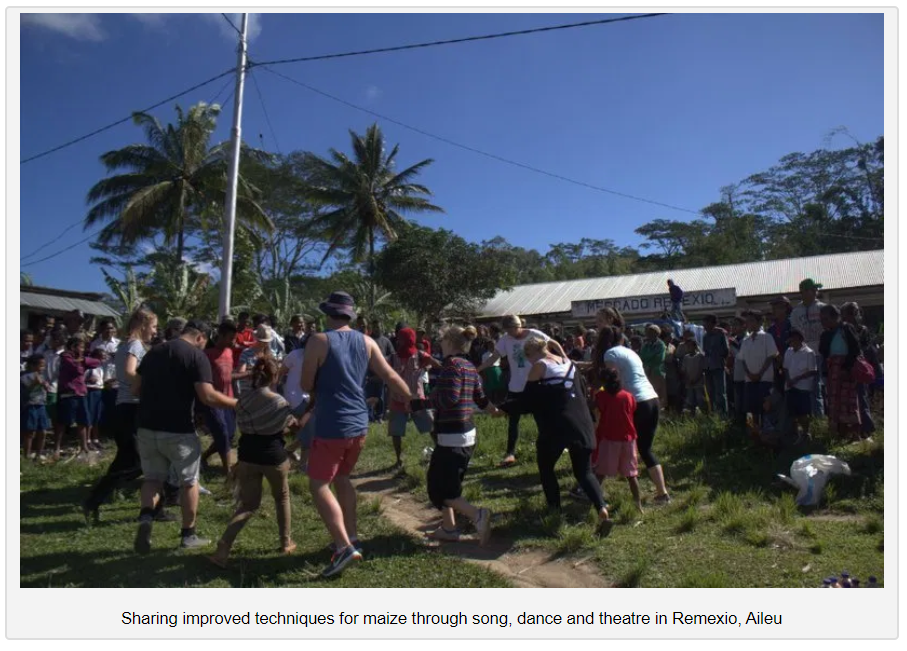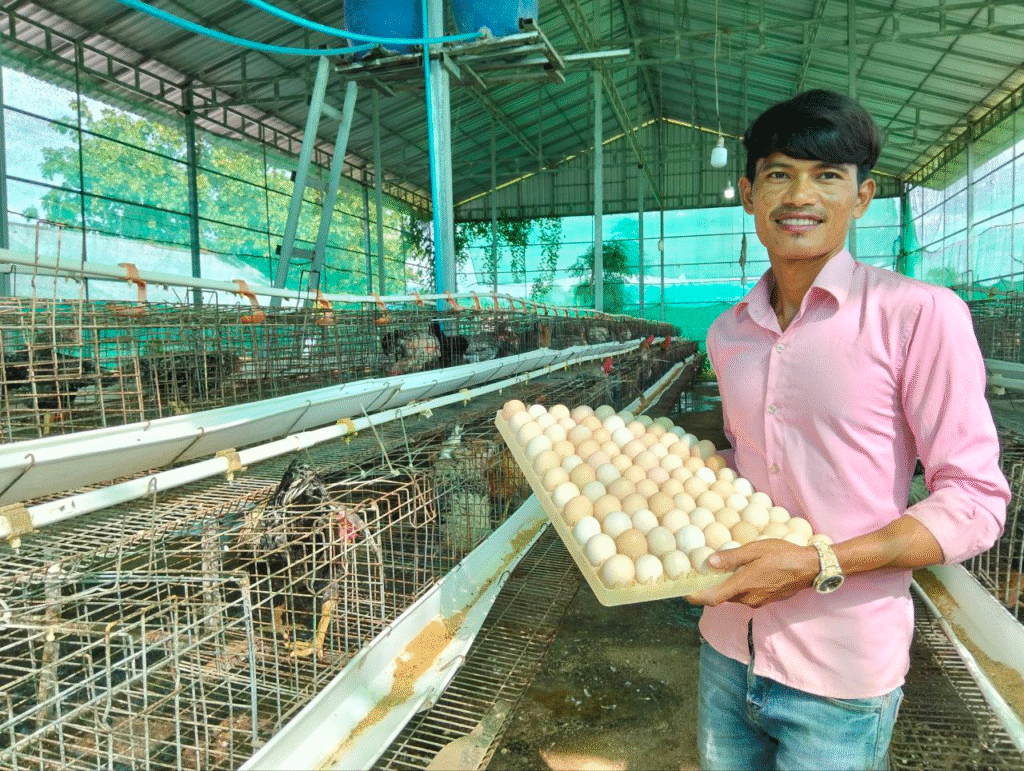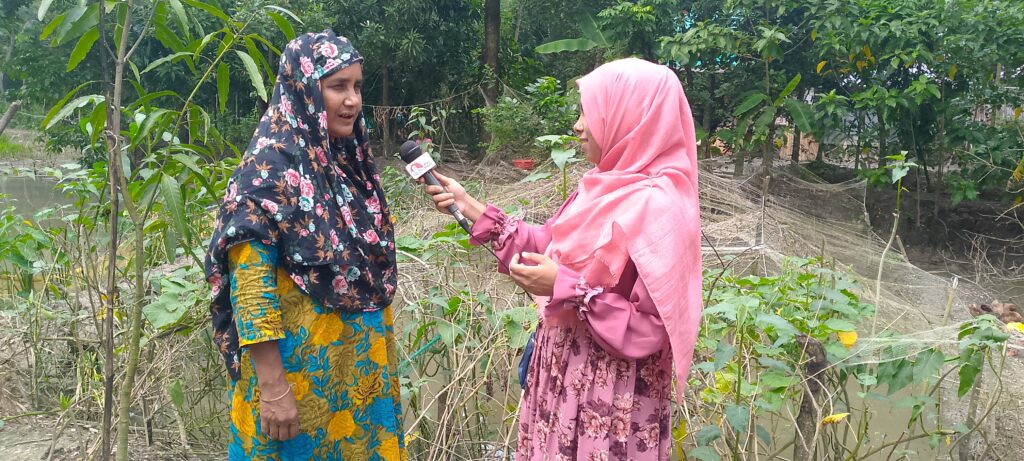
Participatory Theater as a Science Communication Tool in Timor Leste
This study explored the potential of Participatory theater as a tool for disseminating new agricultural knowledge among subsistence farmers in Timor Leste. The aim of the trial was to provide information on improved seed varieties and appropriate agronomic practices to maximize their yield among rural communities where rates of adult illiteracy are high and the reach of mass media forms of communication is low.
The initial pilot involved a theater troupe from Charles Sturt University in Australia, which teaches the use of theater as an educational tool. SoL decided the troupe should promote awareness of two higher
yielding varieties of maize—Sele and Noi Mutin—and present information about agronomic practices that would maximize the results from these seeds. A basic performance structure was built around the given messages, but very little in the way of a traditional “script” was used as much of the content of each performance would arise from interaction with actual audience. The performance would begin with a procession into the marketplace during which the actors—speaking Tetun—would invite people to participate. The performance would then conclude with a circle dance to which audience members were invited to take part and during which free samples of seed were distributed. Typical performance duration was about 45 mins. In the second phase, SoL contracted Teatru Timor Leste to conduct a further extended trial, employing the same participatory theater techniques.
Based on the evaluation survey conducted after performances, respondents showed interest in trying the new varieties of seed and that they would “do something” because of what they had seen and learned in the performance. The results of the trial indicate that village performances are capable of both attracting and retaining large audiences.
Participatory Theater was found an effective and appropriate to communicate science, particularly in areas of low literacy and poor media infrastructure. Partnering with local organizations in program development, promotion, and delivery ensures greater local relevance and attendance and is recommended for practitioners undertaking science communication projects in developing countries.



